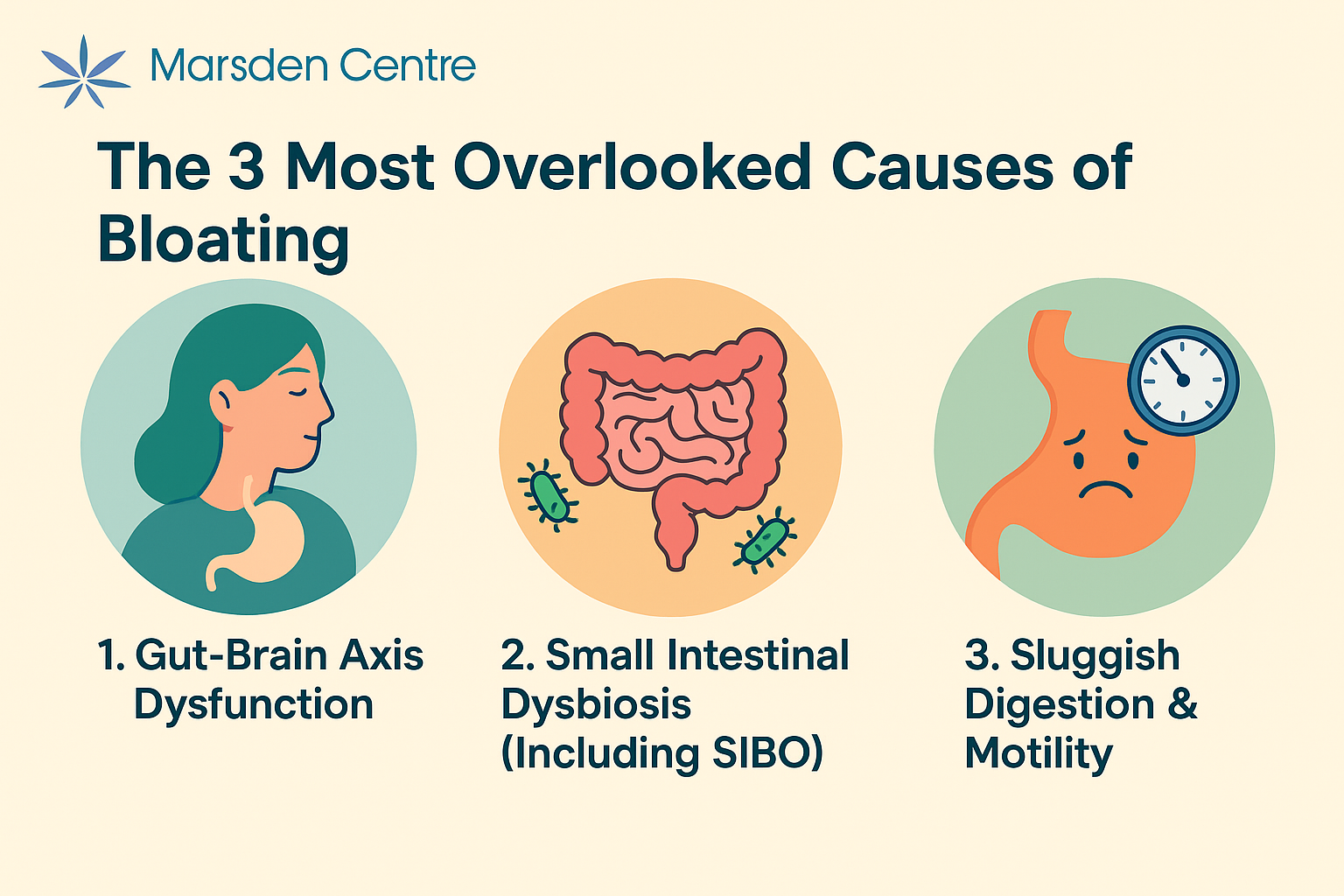
1. Gut-Brain Axis Dysfunction
Your brain and gut are constantly communicating. Stress, anxiety, or nervous system dysregulation can slow motility, increase gas production, and heighten your sensitivity to even normal digestion. This mind-body link is often overlooked—and treating bloating means addressing both.
🔬 Supported by recent studies, the gut-brain axis plays a major role in conditions like IBS, functional dyspepsia, and chronic bloating—even when no food intolerance is present. Treatment may include stress modulation, gut-directed therapy, and nervous system support.
2. Small Intestinal Dysbiosis (Including SIBO)
Small Intestinal Bacterial Overgrowth (SIBO) or other microbial imbalances can result in fermentation of even healthy foods—causing bloating, gas, and discomfort. Many patients with long-term symptoms have never been tested for this.
💡 What helps: Functional testing to identify imbalances, followed by herbal antimicrobials, probiotics, and motility support.
3. Sluggish Digestion & Motility
If your digestive system isn't moving properly, food can sit longer than it should—leading to bloating and fullness. This could stem from post-infection changes, thyroid issues, or nervous system dysfunction.
🧠 Recent research highlights the importance of the enteric nervous system (your “second brain”) in regulating gut movement. Interventions might include prokinetic agents, therapeutic foods, and individualized support.
Ready to get to the root cause of your bloating?
At the Marsden Centre, we use advanced tools and a whole-person approach to uncover what’s really going on.
👉 Book an appointment today
 Download Resource
Download ResourceOur team brings together expertise in naturopathic medicine, environmental health and integrative cancer care, grounded in both scientific research and time-honoured natural approaches.
